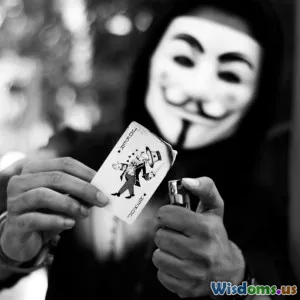
What Lies Beneath: Secret Organizations
7 min read Uncover the hidden world of secret organizations and societies, revealing their history, influence, and impact on society. (0 Reviews)
What Lies Beneath: Secret Organizations
Throughout history, secret organizations have captured the imagination of the public. These groups, shrouded in mystery, often evoke thoughts of clandestine dealings and hidden agendas. From ancient societies to modern groups, the allure of secrecy is a powerful draw. In this article, we will delve into the history, purpose, and impact of secret organizations, shedding light on what lies beneath their enigmatic façades.
The Origins of Secret Organizations
Secret organizations date back thousands of years, with some of the earliest examples found in ancient civilizations. The Mystery Schools of ancient Egypt and Greece, for instance, taught esoteric knowledge to initiates, often involving rituals and teachings that were kept hidden from the uninitiated. These schools were not merely about secrecy; they also aimed to impart wisdom to a select few who were deemed worthy.
Another prominent early example is the Freemasons, which traces its roots to the late 16th to early 17th century. Initially a guild for stonemasons, it evolved into a fraternal organization that emphasizes moral and ethical development. The Freemasons have often been subject to conspiracy theories, partly due to their secretive rites and symbols, such as the iconic square and compass.
The Role of Secrecy in Organizations
Secrecy serves various purposes within organizations. For many, secrecy fosters a sense of exclusivity, creating a bond among members. This is evident in groups like the Skull and Bones, a secret society at Yale University known for its influential alumni, including several U.S. presidents. The rituals and traditions practiced by such societies often serve to reinforce loyalty and camaraderie.
Moreover, secrecy can protect members from political or social backlash. During times of persecution, groups like the Rosicrucians—a mystical organization founded in the early 17th century—operated in secrecy to safeguard their beliefs and practices from scrutiny.
Modern Secret Societies and Their Influence
In contemporary society, secret organizations continue to thrive, albeit in different forms. From political think tanks to clandestine clubs, these groups often wield significant influence behind the scenes. For instance, organizations like the Bilderberg Group, which hosts annual meetings for political and business leaders, are often criticized for their lack of transparency.
The Illuminati, a term that has become synonymous with conspiracy theories, is another group that exemplifies modern secret societies. Originally a Bavarian Enlightenment-era society, the term now refers to a variety of alleged secretive elites believed to manipulate global events. While many claims about the Illuminati are unfounded, the fascination surrounding it speaks to the public's desire to uncover hidden truths.
The Impact of Secret Organizations on Society
The influence of secret organizations can be profound, affecting politics, culture, and social dynamics. For example, the Council on Foreign Relations (CFR) plays a crucial role in shaping U.S. foreign policy through its meetings and publications, yet its inner workings are often obscured from public view.
Additionally, secret organizations can contribute to significant social movements. The Sons of Liberty, formed in the 18th century, were instrumental in American independence, utilizing secrecy to organize protests against British rule. Their legacy highlights how secrecy can serve both noble and nefarious purposes.
Debunking Myths and Misconceptions
While the allure of secret organizations is undeniable, many myths and misconceptions surround them. Often, sensationalized portrayals in media contribute to the public's misunderstanding. For instance, while some believe that secret societies control world events, the reality is typically more complex, involving a mix of public influence and private agendas.
Furthermore, not all secret organizations operate under malicious intentions. Many focus on philanthropy, mentorship, or community service, often leveraging their networks to create positive change. The Rotary Club, for example, while not a secret society in the traditional sense, operates with a level of discretion in its philanthropic efforts, aiming to tackle global issues like poverty and disease.
Conclusion
Secret organizations and societies have long fascinated humanity, shrouded in mystery and intrigue. Their history, purpose, and influence are as varied as the groups themselves. While the allure of secrecy can breed conspiracy theories, it is essential to approach the subject with a critical mind, recognizing the diverse motivations that drive these organizations. Understanding what lies beneath the surface not only demystifies these groups but also offers insights into the complex interplay between secrecy, power, and society at large. As we continue to explore this hidden world, we may uncover not only the secrets of organizations but also the truths about our own societal structures.
Rate the Post
User Reviews
Popular Posts





















